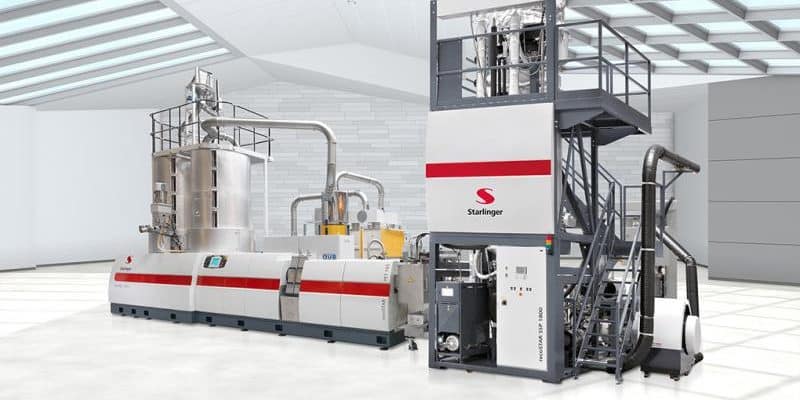T3 (EPZ), a subsidiary of the Indian Megh Group specialising in the recycling of plastic waste (polyethylene terephthalate) in Kenya, will equip its Athi River site with a new recycling system. This unit will be supplied by the Austrian company Starlinger.
In order to improve its technical performance, T3 (EPZ), the subsidiary of the Indian Megh Group, will acquire a new PET (polyethylene terephthalate) bottle recycling system in Kenya. The recycling project was announced on 2 March 2023 by the company, which recycles plastic waste into polyester fibres for garment design.
The system to be installed at T3’s Athi River site is the “Recostar PET iV+” system, which is dedicated to the extrusion and granulation of used plastic bottles. The order was placed with Starlinger, an Austrian supplier of machinery and complete lines for the production of woven plastic bags, plastic recycling lines and extrusion and refining lines for rPET sheets.
The production of polyester fibres
“Our goal has always been to put Kenya on the global recycling map, and being the first company in Kenya to produce not only rPET but also food-grade recycled resin will help us achieve this goal,” says Gurpreet Kaur Kenth, T3’s COO.
The rPET will be 100% reusable for the production of bottle preforms, as well as polyester fibres used in the textile and garment industries. Megh Singh Cushion Makers, a manufacturer of matatu (13-19 seat public transport minibus) seats, vans and buses, as well as various automotive components and accessories in Kenya, will also use these polyester fibres for the automotive trim and textile business. It is a subsidiary of the Megh Group, which manages venture capital and private equity funds.
T3 has set up a collection system that covers the whole of Kenya, with the aim of creating the right incentives for plastic bottle collectors. In addition to improving its performance, T3’s (EPZ) approach will help reduce plastic pollution in Kenya. The East African country produces 480 tonnes of plastic waste per day, which is 20% of the 2,400 tonnes of rubbish generated per day according to a World Bank 2021 report.
Inès Magoum







